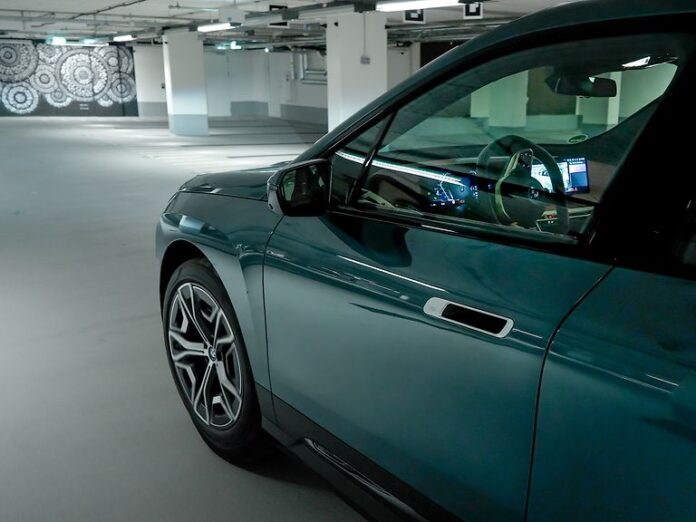Qualcomm, BMW Group, Valeo and Ericsson also took part in the 5G SA automated driving tests
Deutsche Telekom, BMW Group, Valeo, Ericsson and Qualcomm Technologies announced what they claim is the world’s first demonstration of automated driving application supported by 5G Standalone (SA) network slicing with controlled network features for Quality of Service (QoS).
In trials, the partners explored how 5G SA network slicing with different QoS features support end-to-end automotive use case scenarios. Deutsche Telekom noted that network slicing is a key feature of 5G SA. Slices can be tailored to applications and use cases with different QoS requirements in terms of performance, security or latency.
Using the User Equipment Route Selection Policy (URSP) feature, the device was able to dynamically select and connect to multiple slices simultaneously. In addition, a Network API, which exposes network capabilities, was used to request a defined QoS-level from the network. This was requested via a Quality on Demand (QoD) network API. The tests showed the capability of all these features combining to meet the QoS demands of mission-critical applications under various network load situations.
“The BMW Group sees the activities in the telecommunications industry with 5G as a central enabler for many innovative automotive features and also for automated valet parking. It is crucial for such a new solution that several industries work closely together to offer the customer a valuable benefit. The aim is to build a standardized and interoperable AVP ecosystem,” said Nicolai Martin, SVP BMW Group Driving Experience.
Claudia Nemat, board member for technology and innovation at Deutsche Telekom, said: “Deutsche Telekom is excited to be part of this activity to demonstrate the capabilities of advanced network features like 5G network slicing with integrated APIs to meet the Quality of Service demands of automotive use cases. The close cross industry collaboration is essential to co-innovate and develop new solutions that bring customer benefits. This is an enabler for future services.”
In February 2022, Deutsche Telekom, BMW Group and Valeo announced their first tests for QoS using the Quality on Demand feature as a network API. The Application Programming Interface (API) were successfully tested for the Automated Valet Parking (AVP) use case and the results were presented at Mobile World Congress (MWC) 2022.
The partners set out to test and explore whether and how to offer QoS features in future network deployments. The tests were performed at Deutsche Telekom testing facilities in Berlin Winterfeldtstraße. In this trial, BMW Group and Valeo contributed with mission critical use cases for automated driving using Snapdragon Auto 5G Modem-RF from Qualcomm Technologies, with network slicing features to support interoperability testing. Deutsche Telekom, BMW Group, Valeo and Ericsson collaborated to design the trial setup and test cases.
In the tested scenario mission-critical data was transmitted via a high-quality slice, while non-mission-critical data was transmitted via an eMBB slice. The trial’s measurement results showed that for congested conditions, where many users are sharing the limited resources of the mobile network, the automated driving function was consistently served with the necessary bandwidth resources.

